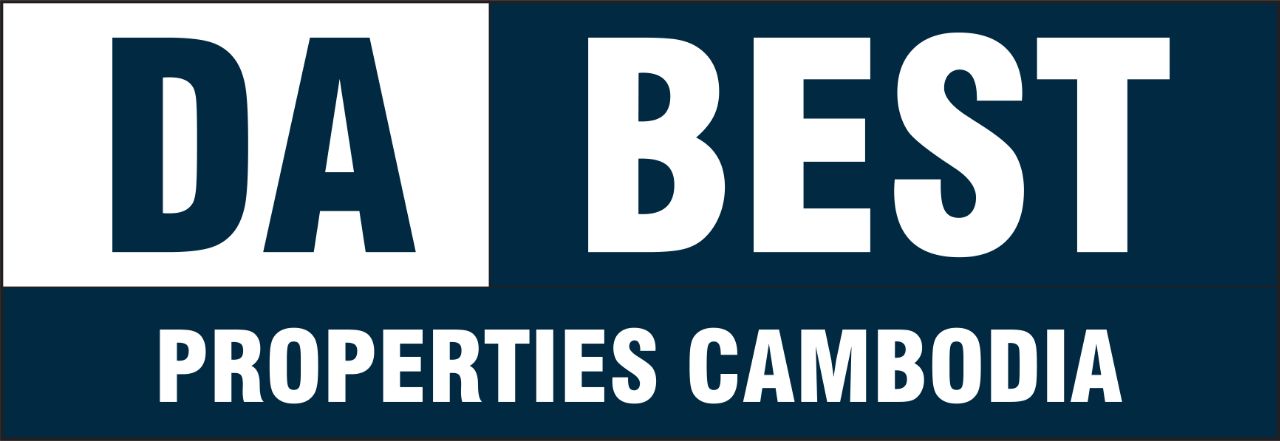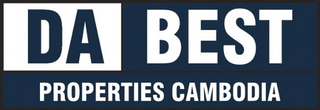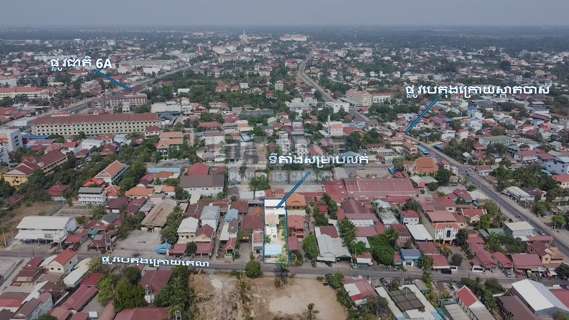What Type Of Land Titles Exist In Cambodia?
Navigating the realm of property ownership in Cambodia can be a challenging endeavor, as various types of land titles exist within this developing nation. Understanding these distinctions is crucial for investors and homeowners alike to ensure their investments are protected.
In this blog post, we will explore the different forms of land titles available in Cambodia—hard title, soft title, Land Management Certificate, possessory title, and strata title—and discuss their unique characteristics and legal implications.
Key Takeaways
- Cambodia has various types of land titles, including hard title, soft title, Land Management Certificate, possessory title, and strata title.
- Hard title is the most secure form of ownership recognized by both local authorities and financial institutions, while soft title provides proof of possession but not necessarily proof of ownership.
- Proper registration with a valid land title offers legal recognition and transfer rights to property owners in Cambodia. However, challenges such as lack of legal recognition for some types of ownership and corruption issues exist in the country.
Understanding Land Titles In Cambodia
Hard title is a land ownership document that provides legal recognition of the property, while soft title indicates the right to occupy and use the land without legal ownership.
Hard Title: Definition And Characteristics
A hard title, also known as a “Certificate of Ownership” or “Land Title Deed,” is the strongest and most secure form of land ownership in Cambodia.
Characterized by its clear marking of boundaries on an official national cadastral map, a hard title contains essential information such as the owner’s name, size and location of the property, neighboring properties’ details, usage restrictions if any exist.
In addition to providing security for both local and foreign buyers — who can acquire indirect ownership through setting up a designated holding company or leasehold arrangement — possession of a hard title enables owners to qualify for mortgages from banks.
Soft Title: Definition And Characteristics
Soft titles are a type of land title in Cambodia that provide proof of possession but not necessarily proof of ownership. This means that the holder has rights to use and occupy the land, but may not have full legal ownership.
Soft titles are often issued for informal settlements or areas where there is no clear record of property ownership.
Soft titles can be obtained from local authorities and usually involve a lower cost than obtaining hard titles. However, they do come with some risks as soft titles can be subject to disputes and conflicts with neighboring landowners who may also claim rights over the same parcel of land.
Land Management Certificate
The Land Management Certificate (LMC) is an official document that certifies the identity of a landowner in Cambodia. It is issued by the Ministry of Land Management, Urban Planning, and Construction (MLMUPC) as part of its land registration process.
This certificate may not grant full ownership rights but serves as evidence for possessory claims in court cases if necessary. For example, it can be used as evidence to protect against third-party investor claims who may have unclear documentation regarding land purchases.
Possessory Title
Another type of land title that exists in Cambodia is the Possessory title. This type of title is used when there is no proper documentation or record of ownership for a piece of land.
The Possessory title provides some level of security and protection, allowing holders to continue using and occupying their land without fear of eviction or displacement.
However, it does not provide full property rights like Hard titles do, nor can it be used as collateral for loans or mortgages.
Strata Title
Another type of land title that exists in Cambodia is the Strata title, which is mainly used for multi-story buildings or condominiums. It grants ownership rights to a specific unit within a building, as well as shared ownership of common areas such as elevators, hallways, and amenities like swimming pools.
With this type of title, owners have more control over their property and can sell or lease it out independently. However, obtaining a strata title can be challenging due to the complexities involved in certifying multiple units within a single structure.
Here are some great examples of our favorite Lands
| Property Name | Size (sqm) | Price per sqm |
|---|---|---|
| Land in Krong Siem Reap, Sangkat Chreav (SRL566) | 1,200 | $130 |
| Land near Wat Chak, Siem Reap (SRL562) | 1,000 | $120 |
| Land behind Angkor Golf, Svay Dangkum (SRL553) | 1,000 | $120 |
| Land in Sangkat Salakamreouk (SRL175) | 4,521 | $405 |
| Land in Sangkat Svay Dangkum (SRL539) | 1,000 | $120 |
| Land near Pub Street, Krong Siem Reap (SRL536) | 653 | $3,000 |
| Land in Chreav, close to town (SRL483) | 1,769 | $120 |
| Land on National Road 6, Siem Reap (SRL519) | 435 | $2,500 |
| Land in Center Siem Reap, Sala Kamreuk (SRL471) | 4,521 | $405 |
| Land in Siem Reap Riverside (SRL530) | 800 | $1,600 |
| Land in Siem Reap, Chreav (SRL531) | 455 | $130 |
The Importance Of Land Titles In Cambodia
Land titles in Cambodia are critical as they establish legal ownership and transfer rights, enable mortgage loans for property purchases, and protect the land from disputes or claims by others.
Legal Ownership And Transfer Rights
Proper land titles in Cambodia are crucial as they provide legal ownership and transfer rights.
Hard titles are the most secure form of property title, giving full legal recognition to the owner. In contrast, soft titles provide less security and may not be recognized by all authorities.
Without a proper title, disputes over land ownership can arise, leading to lengthy legal battles that are often difficult to resolve. Registering your name on the Ministry of Land Management’s database protects you from any potential confiscation claims or fraudulent sales.
However, there have been many instances where people falsely claim ownership or use corrupt means to obtain legitimate papers.
Mortgages And Loans
A proper land title is crucial in Cambodia as it enables property owners to leverage their properties for mortgages and loans. With a hard title, private property ownership is established and recognized by law, making it easier for property owners to acquire financing from banks or other financial institutions.
On the other hand, getting loans with soft titles can be challenging due to their lack of legal recognition. As a result, soft titles are often used for communal or co-owned properties such as housing cooperatives or agricultural projects where individual ownership rights are not clearly defined.
Whether you have a hard or soft title should factor into your decision when seeking financing options.
Protection Of Land Ownership
One of the significant benefits of obtaining a land title in Cambodia is the protection it offers to your property rights.
Moreover, having a valid land title allows you to obtain mortgages and loans against your property. This can be particularly essential for investors looking to develop real estate projects in Cambodia or those seeking financing options for personal reasons.
Urgent Land For Sale In Siem Reap – Sala Kamreuok
- $495/per sqm
- Land for Sale
Land For Sale Behind Tela Gastation In Siem Reap – Svay Dangkum
- $950/sqm
- Land for Sale
Land For Sale Near BBU School In Siem Reap – Svay Dangkum
- $500/sqm
- Land for Sale
The Challenges And Controversies With Land Titles In Cambodia
Several challenges and controversies surround land titles in Cambodia, including lack of legal recognition, disputes and conflicts, corruption and fraud, and land grabbing.
Lack Of Legal Recognition
One of the significant challenges with land titles in Cambodia is the lack of legal recognition for some types of ownership. For instance, possession-based property rights are not legally recognized and may lead to conflicts with land registration.
In addition, a dual land tenure system in place leads to confusion and overlap between traditional and modern property systems.
The result is that many people either don’t have proper documentation or have multiple claimants on their properties, leading to disputes. This uncertainty creates difficulties when trying to sell, mortgage, or develop properties, leading many investors to to shy away from investing because they cannot guarantee secure proof of ownership.
Disputes And Conflicts
Disputes and conflicts over land titles are common in Cambodia, with many cases going unresolved due to a lack of legal recognition and proper documentation.
The dual land tenure system, which includes formal and informal ownership, adds to the complexity of resolving disputes.
Corruption and fraud are also major factors contributing to disputes and conflicts over land titles in Cambodia. Some individuals may use their political influence or power to alter official records or manipulate the registration process for their benefit.
Corruption And Fraud
One of Cambodia’s biggest challenges with land titles is corruption and fraud. Despite having laws and regulations in place, it’s not uncommon for officials to accept bribes or falsify documents to grant ownership rights to individuals who do not own the property.
Many cases have been reported where wealthy businessmen, politicians, or foreign investors claim large portions of lands owned by local communities through fraudulent means.
These individuals often have better connections with government officials than locals who possess legitimate claims over these lands through customary practices or inheritance.
Land Grabbing
Land grabbing refers to the illegal or unethical land acquisition from individuals or communities, often without their consent. This is a growing problem in Cambodia, where large corporations and wealthy individuals acquire land for commercial purposes, displacing local farmers and indigenous communities.
The Cambodian government has faced criticism for failing to protect local people from this issue, leading to widespread corruption and human rights violations. In addition, the lack of clear-cut policies around land tenure makes it difficult for rural communities with customary ancestral lands to register their ownership claims legally.
Additionally, some foreign companies are accused of exploiting loopholes in regulations around foreign ownership by using Cambodian proxies as nominal owners while taking control over vast areas of land.
The Process Of Obtaining A Land Title In Cambodia
To obtain a land title in Cambodia, applicants must register at the Ministry of Land Management, Urban Planning, and Construction and go through an application process that varies depending on the title type.
Registration At The Ministry Of Land Management, Urban Planning, And Construction
To obtain a legally recognized land title in Cambodia, property owners must register their land at the Ministry of Land Management, Urban Planning, and Construction (MLMUPC).
The MLMUPC is responsible for overseeing the registration process to ensure that it meets legal requirements. To begin the application process, property owners must provide relevant documentation proving ownership or possession rights of the land.
Once all required documents are submitted, property owners will receive an official receipt with a tracking number as proof of submission. The processing time for obtaining a land title can vary depending on several factors, such as location and type of title requested.
It’s worth noting that fraud and corruption have been known to occur within this process in some cases.
The Application Process
The first step is registering at the Ministry of Land Management, Urban Planning, and Construction to obtain a land title in Cambodia. The application process involves submitting documents such as a map of the land’s location and size, proof of ownership or occupancy rights, identification documents of both owner and seller (if applicable), and any relevant tax payments.
It is important to note that different land titles require varying documentation requirements during application. For instance, hard titles may require more extensive paperwork compared to soft titles.
Depending on the complexity of the case and the type of title being applied for, it can take several weeks to several months before receiving an official decision from authorities.
Timeframe For Approval
The timeframe for approval of land titles in Cambodia can vary widely depending on the type of title being applied for and the efficiency of the registration process.
Generally, it takes around two to three months to obtain a hard title after submitting all required documents and fees to the Ministry of Land Management, Urban Planning, and Construction.
On the other hand, obtaining a soft title typically takes less time as it involves fewer administrative requirements.
It is essential to note that obtaining the proper documentation for land ownership is crucial in Cambodia as it provides legal recognition and protection against fraud or land grabbing.
Choosing The Right Type Of Land Title In Cambodia
When choosing the right type of land title in Cambodia, it’s important to understand the options available and their unique characteristics. Hard titles are considered the most secure and provide legal ownership that can be bought, sold, or transferred easily.
On the other hand, soft titles offer flexible ownership rights but have limitations regarding transferability.
Before deciding which type of title is best suited for your needs, you should consider various factors, such as the property’s intended use, location, and long-term plans.
Working with local professionals such as lawyers or real estate agents with experience with Cambodian land laws and regulations is advisable.
In Conclusion
The Importance Of Proper Land Title Registration And Protection In Cambodia
In Cambodia, there are several types of land titles exist, including hard titles, soft titles, land management certificates, possessory titles, and strata titles. Each type has its own characteristics and benefits.
The importance of proper land title registration cannot be overstated, as it provides property owners legal ownership and transfer rights. It also allows for obtaining mortgages and loans while protecting against disputes or fraudulent activity.
However, obtaining a land title can prove challenging due to the country’s lack of legal recognition or corruption issues.







